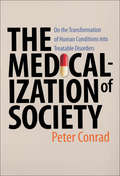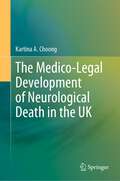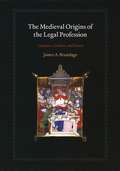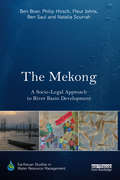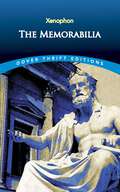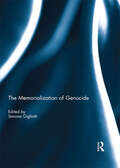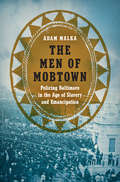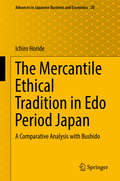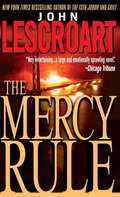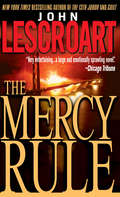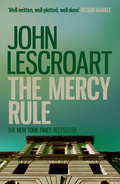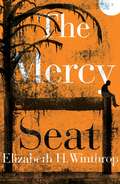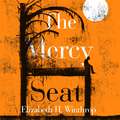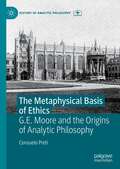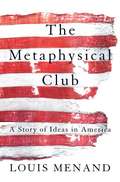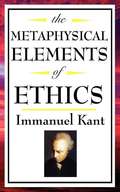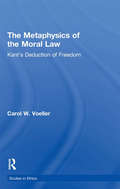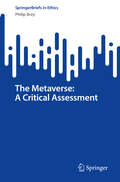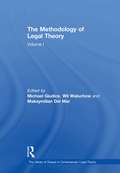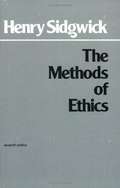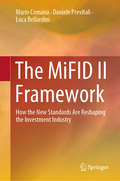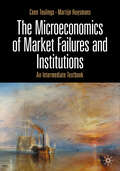- Table View
- List View
The Medicalization of Society: On the Transformation of Human Conditions into Treatable Disorders
by Peter ConradOver the past half-century, the social terrain of health and illness has been transformed. What were once considered normal human events and common human problems—birth, aging, menopause, alcoholism, and obesity—are now viewed as medical conditions. For better or worse, medicine increasingly permeates aspects of daily life.Building on more than three decades of research, Peter Conrad explores the changing forces behind this trend with case studies of short stature, social anxiety, "male menopause," erectile dysfunction, adult ADHD, and sexual orientation. He examines the emergence of and changes in medicalization, the consequences of the expanding medical domain, and the implications for health and society. He finds in recent developments—such as the growing number of possible diagnoses and biomedical enhancements—the future direction of medicalization. Conrad contends that the impact of medical professionals on medicalization has diminished. Instead, the pharmaceutical and biotechnical industries, insurance companies and HMOs, and the patient as consumer have become the major forces promoting medicalization. This thought-provoking study offers valuable insight into not only how medicalization got to this point but also how it may continue to evolve.
The Medico-Legal Development of Neurological Death in the UK
by Kartina A. ChoongDiagnosis of death by neurological criteria (DNC) is a construct which has been part of the British medico-legal landscape for nearly half a century. This book examines the factors behind its emergence, and discusses the various changes that took place in the last few decades that culminated in the current definition and clinical criteria for determining brain-based death. It highlights the continuities and discontinuities in practice, and the impact they have on the issue of withdrawal of mechanical ventilation in intensive care units and on the field of organ transplantation. The book also explores the law’s response to the introduction and development of DNC in clinical practice. It demonstrates how the legitimacy of the definition and criteria used by the medical profession were forged in the courtroom rather than in Parliament. It documents why case law were introduced in court, and assesses whether organ donation was a consideration in the deliberations. It will be emphasised that courts have given insufficient consideration to requests made in recent cases to consider a broader range of methods to determine death. Those pleas were made on the grounds that the definition and criteria used in the UK are dissimilar to those used in other jurisdictions that also adopt DNC; and that faith communities have a different understanding of death. By taking a close look at those other approaches before highlighting the inherent limitations of the courtroom as the forum that confers DNC its legitimacy, the book puts forward the argument that the democratic process should be engaged.
The Medieval Origins of the Legal Profession: Canonists, Civilians, and Courts
by James A. BrundageIn the aftermath of sixth-century barbarian invasions, the legal profession that had grown and flourished during the Roman Empire vanished. Nonetheless, professional lawyers suddenly reappeared in Western Europe seven hundred years later during the 1230s when church councils and public authorities began to impose a body of ethical obligations on those who practiced law. James Brundage's "The Medieval Origins of the Legal Profession" traces the history of legal practice from its genesis in ancient Rome to its rebirth in the early Middle Ages and eventual resurgence in the courts of the medieval church.
The Mekong: A Socio-legal Approach to River Basin Development (Earthscan Studies in Water Resource Management)
by Ben Boer Fleur Johns Ben Saul Philip Hirsch Natalia ScurrahAn international river basin is an ecological system, an economic thoroughfare, a geographical area, a font of life and livelihoods, a geopolitical network and, often, a cultural icon. It is also a socio-legal phenomenon. This book is the first detailed study of an international river basin from a socio-legal perspective. The Mekong River Basin, which sustains approximately 70 million people across Cambodia, China, Laos, Myanmar, Thailand and Vietnam, provides a prime example of the socio-legal complexities of governing a transboundary river and its tributaries. The book applies its socio-legal analysis to bring a fresh approach to understanding conflicts surrounding water governance in the Mekong River Basin. The authors describe the wide range of uses being made of legal doctrine and legal argument in ongoing disputes surrounding hydropower development in the Basin, putting to rest lingering caricatures of a single, ‘ASEAN’ way of navigating conflict. They call into question some of the common assumptions concerning the relationship between law and development. The book also sheds light on important questions concerning the global hybridization or crossover of public and private power and its ramifications for water governance. With current debates and looming conflicts over water governance globally, and over shared rivers in particular, these issues could not be more pressing.
The Memorabilia: Recollections Of Socrates (Dover Thrift Editions)
by XenophonPhilosopher, soldier, and historian, Xenophon was a former student of Socrates who composed The Memorabilia many years after his teacher's trial and execution in 399 B.C. This collection of Socratic dialogues presents not the philosopher's actual defense to the Athenian court but rather a more general appreciation of his life and thought, although Xenophon does argue that Socrates was innocent of the formal charges against him: failure to recognize the gods of Athens, the introduction of new gods, and corruption of the youth. This picture of Socrates differs substantially from that drawn by Plato, who focused on the ancient Greek sage's philosophy. Xenophon, on the other hand, offers many examples of the great philosopher's conversations with his students and fellow citizens, recounting more of the actual advice Socrates gave to those with whom he spoke. Accordingly, these dialogues offer a fascinating complement to the better-known works of Plato.
The Memorialization of Genocide
by Simone GigliottiDivided societies, tormented pasts, and unrepentant perpetrators. Why are some countries more intent on vanquishing uncomfortable pasts than others? How do public and often unsightly attempts at memorialisation both fail the victims and valorize their oppressors? This book offers fresh and original perspectives on dictatorship, fascism and victimization from the bloodiest decades in Europe’s, Australia’s and Central America’s colonial and modern history. Chapters include analyses of Francoist memorials in Spain, assessments of the El Mozote massacre in El Salvador, the forgetting of frontier colonial violence in Tasmania, Romania’s treatment of its Roma populations in the midst of Holocaust memorialisation in Bucharest’s urban development, and whether or not the Holocaust continues to serve as an instructional model or impossible aspiration for cross-cultural genocide memorialisation strategies. In an era of ongoing political, ethnic and religious conflict, and unrepentant insurgent activity around the world, this collection reminds readers that genocidal actions, wherever and whenever they occurred, must be held to account by more than rhetoric and concrete memory. This book was originally published as a special issue of the Journal of Genocide Research.
The Men of Mobtown: Policing Baltimore in the Age of Slavery and Emancipation (Justice, Power, and Politics)
by Adam MalkaWhat if racialized mass incarceration is not a perversion of our criminal justice system's liberal ideals, but rather a natural conclusion? Adam Malka raises this disturbing possibility through a gripping look at the origins of modern policing in the influential hub of Baltimore during and after slavery's final decades. He argues that America's new professional police forces and prisons were developed to expand, not curb, the reach of white vigilantes, and are best understood as a uniformed wing of the gangs that controlled free black people by branding them—and treating them—as criminals. The post–Civil War triumph of liberal ideals thus also marked a triumph of an institutionalized belief in black criminality.Mass incarceration may be a recent phenomenon, but the problems that undergird the "new Jim Crow" are very, very old. As Malka makes clear, a real reckoning with this national calamity requires not easy reforms but a deeper, more radical effort to overcome the racial legacies encoded into the very DNA of our police institutions.
The Mercantile Ethical Tradition in Edo Period Japan: A Comparative Analysis with Bushido (Advances in Japanese Business and Economics #20)
by Ichiro HorideThis book demonstrates that during Japan’s early modern Edo period (1603–1868) an ethical code existed among the merchant class comparable to that of the well-known Bushido. There is compelling evidence that contemporary merchants, who were widely and openly despised as immoral by the samurai, in fact acted in highly ethical ways in accordance with a well-articulated moral code.Japanese society was strictly stratified into four distinct and formally recognized classes: warrior, farmer, craftsman and merchant. From the warriors’ perspective, the merchants, at the base of the social order, had no virtue, and existed only to skim profits as middlemen between producers and consumers. But were these accusations correct? Were the merchants really unethical beings who engaged in unfair business practices? There is ample evidence that negates the ubiquitous slanders of the warrior class and suggests that merchants – no less than the warriors – possessed and acted in accordance with a well-developed ethical code, a spirit that may be called shonindo or “The Way of the Merchant.” This book examines whether a comparison of shonindo, depicting the ethical point of view of the merchant class, and Bushido, embodying that of the warrior class, reveals that shonindo may have in fact surpassed Bushido in some aspects. Comparing contemporarily published historical documents concerning both shonindo and Bushido, as well as Inazo Nitobe’s classic work Bushido: The Soul of Japan, published in 1900, the author examines how Bushido surpassed shonindo in that warriors were willing to die for their strict ethical code. Shonindo, however, may have surpassed Bushido in that merchants were liberal, willing to expand and extend application of their ethical beliefs into all aspects of everyday life for the overall benefit of society. This ethical code is compared with that of the conservative Bushido, which demonstrably proved not up to the task for the modernization and improved well-being of Japan. Ichiro Horide is professor emeritus of Reitaku University. Edward Yagi (Reitaku University) and Stanley J. Ziobro II (Trident Technical College) collaborated in the translation of the original Japanese manuscript into English.
The Mercy Rule (Dismas Hardy #5)
by John LescroartIn Dismas Hardy, New York Times bestselling author John Lescroart has created one of the most complex and engaging characters in contemporary fiction. Hardy, the former bartender, loving husband and father, and reluctant defense attorney of Lescroart's blockbuster novel The 13th Juror, returns in The Mercy Rule to face his most challenging case yet.<P> Set apart from his contemporaries by virtue of his remarkable storytelling, John Lescroart gives readers the novel of his career in The Mercy Rule. Vowing to spend more time with his wife and kids, Dismas Hardy is hesitant to take on the case of Graham Russo, a could-have-been-great baseball player turned lawyer indicted for the murder of his father, Sal. Everyone close to the Russos knew Sal was dying, and that he needed morphine injections to ease his suffering. Graham freely admits to administering those injections, but insists he wasn't there the night of Sal's overdose and resultant death. Was it suicide, murder--or mercy?<P> With personal and professional tensions mounting, Hardy finds himself face-to-face with a terrifying truth: If this was a murder, he might well be the next person to die.<P> With his mastery of courtroom drama, and solid connection to the human element that makes his fiction so compelling, John Lescroart has created in The Mercy Rule an intelligent and richly satisfying thriller that will keep readers turning the pages far into the night.
The Mercy Rule: A Novel (Dismas Hardy Ser. #5)
by John Lescroart“A stylish whodunit . . . Lescroart [is] in his best form yet.”—People Once Dismas Hardy was a cop. Now he spends his days in a lawyer’s suit, billing hours to a corporate client in a downtown San Francisco office. Hardy’s wife and kids like it that way. Then one client changes everything. Graham Russo, a former baseball star, is charged with murdering his dying father. Was it suicide, the last desperate act of a dying man? Was it murder? Or mercy?Now, as a carnival of reporters, activists, cops, lovers, and families throng around the case, Dismas Hardy is going to trial with a client he doesn’t trust, a key witness he cannot believe, and a system that almost destroyed him once. For Dismas, this case will challenge everything he believes about the law, about his family, and about himself. Because a chilling truth is beginning to emerge about an old man’s lonely death. And what Dismas knows could put him next in line to die. . . . Praise for The Mercy Rule “Very entertaining . . . a large and emotionally sprawling novel.”—Chicago Tribune “As usual in a Lescroart novel, character dominates plot as the author proves, yet again, that resonant drama can be found in family.”—The Philadelphia Inquirer “An edge-of-the-seat legal thriller that has it all—hot-button issues, deception, greed, corruption, and a labyrinthine plot that will keep you guessing until the very last page.”—Faye Kellerman
The Mercy Rule: A chilling and emotional thriller of justice, compassion and murder (Dismas Hardy)
by John LescroartWas it suicide? Was it murder? Or was it mercy...? Dismas Hardy takes on his most morally complex trial yet in The Mercy Rule, John Lescroart's fifth book of the series. Perfect for fans of Deborah Hawkins and Steve Cavanagh. 'Very entertaining... a large and emotionally sprawling novel' - Chicago TribuneAn old man suffering from the implacable advance of Alzheimer's is found dead, an empty morphine vial by his side: obviously suicide. Or did someone - a loving son, perhaps, help him die? Who would blame him? But Graham Russo insists he had nothing to do with his father's death. A claim, that as more and more incriminating evidence comes to light, even his lawyer, Dismas Hardy, finds increasingly hard to believe. But despite his unease about his engaging but unreliable client, Hardy knows there is no way he can abandon Russo when the politicians turn him into the pawn at the heart of the media issue of the year...What readers are saying about The Mercy Rule:'Breath-taking plot in a book you wouldn't miss''A constant page turner''Wonderful characters, intriguing mystery'
The Mercy Seat
by Elizabeth H. WinthropAs the sun begins to set over Louisiana one October day in 1943, a young black man faces the final hours of his life: at midnight, eighteen-year-old Willie Jones will be executed by electric chair for raping a white girl - a crime some believe he did not commit. In a tale taut with tension, events unfold hour by hour from the perspectives of nine people involved. They include Willie himself, who knows what really happened, and his father, desperately trying to reach the town jail to see his son one last time; the prosecuting lawyer, haunted by being forced to seek the death penalty against his convictions, and his wife, who believes Willie to be innocent; the priest who has become a friend to Willie; and a mother whose only son is fighting in the Pacific, bent on befriending her black neighbours in defiance of her husband. In this exceptionally powerful novel, Elizabeth Winthrop explores matters of justice, racism and the death penalty in a fresh, subtle and profoundly affecting way. Her kaleidoscopic narrative allows us to inhabit the lives of her characters and see them for what they are - complex individuals, making fateful choices we might not condone, but can understand.
The Mercy Seat
by Elizabeth H. WinthropAn unforgettable novel - a riveting, heart-wrenching story of injustice and racism in 1940s Louisiana that is as powerful and profound as it is timely.As the sun begins to set over Louisiana one October day in 1943, a young black man faces the final hours of his life: at midnight, eighteen-year-old Willie Jones will be executed by electric chair for raping a white girl - a crime some believe he did not commit. In a tale taut with tension, events unfold hour by hour from the perspectives of nine people involved. They include Willie himself, who knows what really happened, and his father, desperately trying to reach the town jail to see his son one last time; the prosecuting lawyer, haunted by being forced to seek the death penalty against his convictions, and his wife, who believes Willie to be innocent; the priest who has become a friend to Willie; and a mother whose only son is fighting in the Pacific, bent on befriending her black neighbours in defiance of her husband. In this exceptionally powerful novel, Elizabeth Winthrop explores matters of justice, racism and the death penalty in a fresh, subtle and profoundly affecting way. Her kaleidoscopic narrative allows us to inhabit the lives of her characters and see them for what they are - complex individuals, making fateful choices we might not condone, but can understand.(P)2018 Hodder & Stoughton Limited
The Metaphysical Basis of Ethics: G.E. Moore and the Origins of Analytic Philosophy (History of Analytic Philosophy)
by Consuelo PretiThis book remedies the absence in the history of analytic philosophy of a detailed examination of G. E. Moore’s philosophical views as they developed between 1894 and 1902. This period saw the inauguration of analytic philosophy through the work of Moore and Bertrand Russell. Moore’s early views are examined in detail through unpublished archival material, including surviving letters, diaries, notes of lectures attended, papers for Cambridge societies, and drafts of early work, in order to revise the established view that the origin of analytic philosophy at Cambridge was an abrupt split from F. H. Bradley’s Absolute Idealism. Traditional accounts of this period have highlighted the anti-psychologism of Frege’s logic but have not explored the impact of this movement more broadly. Anti-psychologism was a key feature of the work of Moore’s teachers on the nature of the mind and its objects, in their interpretation of Kant, and in ethics. Moore’s teachers G.F. Stout and James Ward were significant contributors to the late 19th century debates in mental science and the developing new science of psychology. Henry Sidgwick’s criticisms of Kant and Bradley and his leading work in ethics were key influences on Moore. Moore’s Trinity Fellowship Dissertations are essential historical evidence of the development of Moore's new theory of judgment, a theory whose defining role in the origins of analytic philosophy cannot be overstated. Moore’s study of Kant in his dissertations ultimately formed the groundwork for his Principia Ethica (1903), which evolved from ideas that manifested in Moore’s earliest Apostles’ papers, developed through his dissertations, and were refined through his Elements of Ethics lectures (1898-99). This monumental work of early twentieth century ethics is thus shown to be the culmination of Moore’s early philosophical development.
The Metaphysical Club: A Story of Ideas in America
by Louis MenandWinner of the 2002 Pulitzer Prize for History, a riveting, original book about the creation of modern American thought. The Metaphysical Club was an informal group that met in Cambridge, Massachusetts, in 1872, to talk about ideas. Its members included Oliver Wendell Holmes, Jr., future associate justice of the United States Supreme Court; William James, the father of modern American psychology; and Charles Sanders Peirce, logician, scientist, and the founder of semiotics. The Club was probably in existence for about nine months. No records were kept. The one thing we know that came out of it was an idea -- an idea about ideas.
The Metaphysical Elements of Ethics
by Immanual KantIf there exists on any subject a philosophy (that is, a system of rational knowledge based on concepts), then there must also be for this philosophy a system of pure rational concepts, independent of any condition of intuition; in other words, a metaphysic. It may be asked whether metaphysical elements are required also for every practical philosophy, which is the doctrine of duties, and therefore also for Ethics.
The Metaphysics and Ethics of Relativism
by Carol RovaneRelativism is a hotly contested doctrine among philosophers, some of whom regard it as neither true nor false but simply incoherent. As Carol Rovane demonstrates in this analytical tour-de-force, the way to defend relativism is not initially by establishing its truth but by clarifying its content. The Metaphysics and Ethics of Relativism elaborates a doctrine of relativism that has a consistent logical, metaphysical, and practical significance. Relativism is worth debating, Rovane contends, because it bears directly on the moral choices we make in our lives. Three intuitive conceptions of relativism have been influential in philosophical discourse. These include the idea that certain unavoidable disagreements are irresolvable, leading to the conclusion that "both sides are right," and the idea that truth is always relative to context. But the most compelling, Rovane maintains, is the "alternatives intuition. " Alternatives are truths that cannot be embraced together because they are not universal. Something other than logical contradiction excludes them. When this is so, logical relations no longer hold among all truth-value-bearers. Some truths will be irreconcilable between individuals even though they are valid in themselves. The practical consequence is that some forms of interpersonal engagement are confined within definite boundaries, and one has no choice but to view what lies beyond those boundaries with what Rovane calls "epistemic indifference. " In a very real sense, some people inhabit different worlds--true in themselves, but closed off to belief from those who hold irreducibly incompatible truths.
The Metaphysics of Morals
by Immanuel KantIf moral principles apply to everyone, in every situation, at all times, they must be based on concepts of reason rather than on culture or individual personality. "The Metaphysics of Morals" uncovers the principles that guide moral duties and determine the moral compass for good will. By explaining why actions are moral only if they are intentionally moral (not for ulterior motive) and why intention is more important than the outcome of an act (with respect to morality), Kant makes the case for a definable basis for human morality.
The Metaphysics of Pragmatism
by Sidney HookConsidered by some the most controversial American philosopher of contemporary times, SIDNEY HOOK (1902-1989) was infamous for the wild swing in his political thought over the course of his career, starting out as a young Marxist before the Great Depression and ending up a vehement anti-Communist in his later years. The Metaphysics of Pragmatism-Hook's first work, originally published in 1927-is something of a malicious joke on the philosopher's part, one he readily acknowledges in his introduction, a bringing together of one discipline, that of metaphysics, with the one generally regarded as its polar opposite, that of pragmatism, for the purposes of rescuing the second. Though not a political work at all—except, possibly, one of academic politics—this is nevertheless a fascinating introduction to this notorious figure. In its expression of the author's "passionate moral interest in the creative power... of human thinking," it may, perhaps, begin to lend some understanding to the shifts in his own thinking that characterized his work.—Print ed.
The Metaphysics of the Moral Law: Kant's Deduction of Freedom (Studies in Ethics)
by Carol W. VoellerThis work offers a new understanding of Kant on the freedom of the will. Voeller looks in detail at the Groundwork of the Metaphysics of Morals and the Critique of Practical Reason against the background of Kant's critical philosophy as a whole.
The Metaverse: A Critical Assessment (SpringerBriefs in Ethics)
by Philip BreyThis book offers an extensive assessment of the nature and feasibility of the metaverse and is the first to critically examine its social and ethical implications. The metaverse is, in essence, an envisioned future merger of virtual and augmented reality (VR and AR) and the internet, enabling real-time immersive interaction and activities like work, play, socializing, and entertainment. Major tech companies like Meta, Microsoft, Apple and NVIDIA have been investing billions in metaverse technologies, with generative AI accelerating progress. This book examines how these efforts could culminate in the metaverse, exploring its potential forms, implications, and the social and ethical challenges it may pose—along with recommendations for responsible innovation. The book is aimed at stakeholders shaping the metaverse—developers, creators, investors, business leaders, and thought leaders in technologies like VR, AR, Web3, blockchain, and AI. It also serves scholars and students in applied ethics, the social sciences, and the humanities, including fields such as media studies, psychology, and law. General readers interested in the metaverse and emerging technologies will find it both accessible and engaging. Endorsements: "In this book, the talented and eloquent philosopher Philip Brey carefully explains the history and ideas behind the metaverse, and the prospects for its further development and adoption. That detailed information, meticulously presented, makes this a valuable read. But that is just the start. In later chapters, Brey just as skillfully describes the opportunities and vulnerabilities that a metaverse is likely to generate. These chapters are thorough, precise, and offer profound insights into our possible futures. Some of the possibilities are exciting. Others are frightening." –Keith W. Miller, University of Missouri–St. Louis.
The Methodology of Legal Theory: Volume I (The\library Of Essays In Contemporary Legal Theory Ser.)
by Michael GiudiceThe last decade has witnessed a particularly intensive debate over methodological issues in legal theory. The publication of Julie Dickson's Evaluation and Legal Theory (2001) was significant, as were collective returns to H.L.A. Hart's 'Postscript' to The Concept of Law. While influential articles have been written in disparate journals, no single collection of the most important papers exists. This volume - the first in a three volume series - aims not only to fill that gap but also propose a systematic agenda for future work. The editors have selected articles written by leading legal theorists, including, among others, Leslie Green, Brian Leiter, Joseph Raz, Ronald Dworkin, and William Twining, and organized under four broad categories: 1) problems and purposes of legal theory; 2) the role of epistemology and semantics in theorising about the nature of law; 3) the relation between morality and legal theory; and 4) the scope of phenomena a general jurisprudence ought to address.
The Methods Of Ethics
by John Rawls Henry SidgwickThis Hackett edition, first published in 1981, is an unabridged and unaltered republication of the seventh (1907) edition as published by Macmillan and Company, Limited. From the forward by John Rawls: In the utilitarian tradition Henry Sidgwick (1838-1900) has an important place. His fundamental work, The Methods of Ethics (first edition 1874, seventh and last edition 1907, here reprinted), is the clearest and most accessible formulation of what we may call 'the classical utilitarian doctorine. ' This classical doctrine holds that the ultimate moral end of social and individual action is the greatest net sum of the happiness of all sentient beings. Happinesss is specified (as positive or negative) by the net balance of pleasure over pain, or, as Sidgwick preferred to say, as the net balance of agreeable over disagreeable consciousness.
The MiFID II Framework: How the New Standards Are Reshaping the Investment Industry
by Daniele Previtali Mario Comana Luca BellardiniThis book provides a detailed analysis of the main innovations and impacts associated with the package of European legislation comprising MiFID II and MiFIR, which constitutes a pillar of the EU’s “single rulebook” for financial regulation. Adopting a research-oriented approach, the authors also consider the practical consequences of the new legislation, to provide a clear description of the new rules and the ways in which they address concerns raised by the financial crisis, as well as an appraisal of the theoretical implications from an EU-wide perspective. The book also presents a comparative analysis of how the package is being implemented within the larger countries of the Eurozone and the United Kingdom, and evaluates the likely consequences for banks’ business models. This research book is a valuable resource for graduate and master’s level students as well as professionals and practitioners interested in understanding the European financial law and, in particular, the dynamics of the investment industry.
The Microeconomics of Market Failures and Institutions: An Intermediate Textbook
by Coen Teulings Martijn HuysmansThis graduate textbook explores key microeconomic concepts to provide insight into financial markets, comparative economic development, and political institutions. Theoretical concepts are accompanied by historical and real life case studies to highlight the evolution of institutions and the solutions to market failures. General mathematical models are presented in a practical and clear manner and can be applied to problem solving scenarios. Key dilemmas relating to monopolies, institutional design, economic policy, power in society, and the rule of law are also discussed. This multidisciplinary book aims to provide a real world understanding of microeconomics and game theory, enabling readers to review policy and institutional requirements. It will be relevant to students and policymakers interested in institutional economics, the political economy, financial economics, and economic governance.
